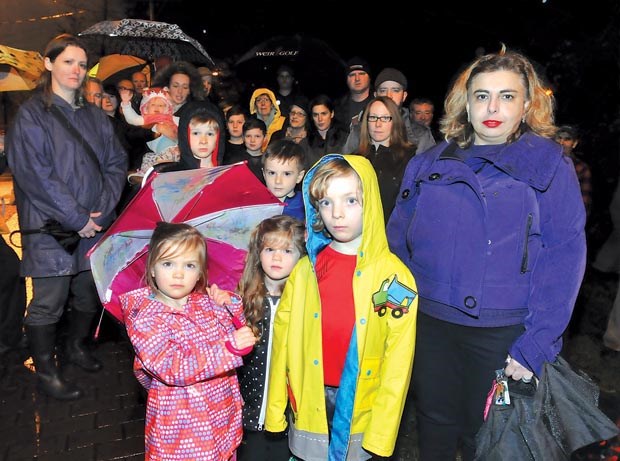A group of North Vancouver neighbours says they’re unhappy about plans to put a two-storey, nine-bed, drug and alcohol recovery centre on a lot adjacent to 2414 Windridge Dr.
Paddi Nikbin, who lives near the site, said the men-only house would bring mentally unstable, potentially violent addicts to the family-oriented community.
Nikbin, who spent 10 years working in rehab and recovery houses for Vancouver Coastal Health, said she’s seen firsthand that many addicts have “some sort of mental disorder.”
Nikbin stopped working in 2004 due to post-traumatic stress disorder, an ailment she said would be aggravated by the recovery house.
The District of North Vancouver has scheduled a community information meeting about the recovery house at Parkgate Community Centre on Thursday at 6:30 p.m.
So far, the municipality has been derelict in keeping the community informed about the project, according to Windridge Drive resident Krista McGrath.
“They’ve fallen short on who they’ve told,” she said, adding that many of her neighbours hadn’t heard anything about the plans for the recovery centre.
The need for the recovery house is acute, according to District of North Vancouver Coun. Doug MacKay-Dunn. “I believe that we shouldn’t be sending our folks over to the
Downtown Eastside to go through a process of rehabilitation. It’s best done at home,” he said.
Brenda Plant, executive director of the Turning Point Recovery Society, agreed.
“We don’t think (people with addictions) should be segregated or isolated any more than we would do that to people with cancer or asthma or diabetes,” she said.
The house — which is proposed for a district-owned vacant lot — needs to go through community consultation and to pass muster with council before it is approved.
Plant said some of the neighbours’ concerns are rooted in fear and others are incorrect.
The abstinence-based recovery society does not accept patients with violent criminal records, she said.
“There’s a misunderstanding, or not enough of an understanding, about who these folks are, I mean, it’s you and me,” Plant said. “We’ve never, in 33 years, had an incident at or near or involving Turning Point.”
Plant added there hasn’t been a single police call to Turning Point’s sister facility on Lloyd Avenue since the women’s recovery house there opened six months ago.
However, those opposed to the recovery house say the pastoral setting of Lloyd Avenue is better suited for a facility than Windridge, which — besides being too far from a police detachment — is frequently backed up with drivers detouring off Mt. Seymour Parkway, according to Nikbin.
The house would treat patients at risk of homelessness, something Nikbin sees as a contradiction to the
notion of a treatment centre for North Vancouver residents.
“A homeless person is not a resident of North Vancouver,” she said. “Homeless people can’t be residents of anywhere.”
Born into a comfortable life in Iran, Nikbin said her father made the decision to move the family to Canada so his children could grow up and have a voice.
“What I see here is you can have a voice but nobody listens to you. . . . So what’s the difference between Iran and here?” she asked.
If approved, the district would lease the land to BC Housing for $1 a year, and in turn BC Housing would contract Turning Point to operate the facility.
Council approved the Lloyd Avenue facility unanimously, despite some misgivings in the neighbourhood about the site’s value as parkland.
Council granted the Lloyd Avenue project’s detractors 45 days to garner 6,000 signatures — 10 per cent of the municipality’s electors — to halt the project, but the petition fell well short.
Nikbin’s petition opposing the house had garnered 20 signatures at press time.
This article has been amended.



